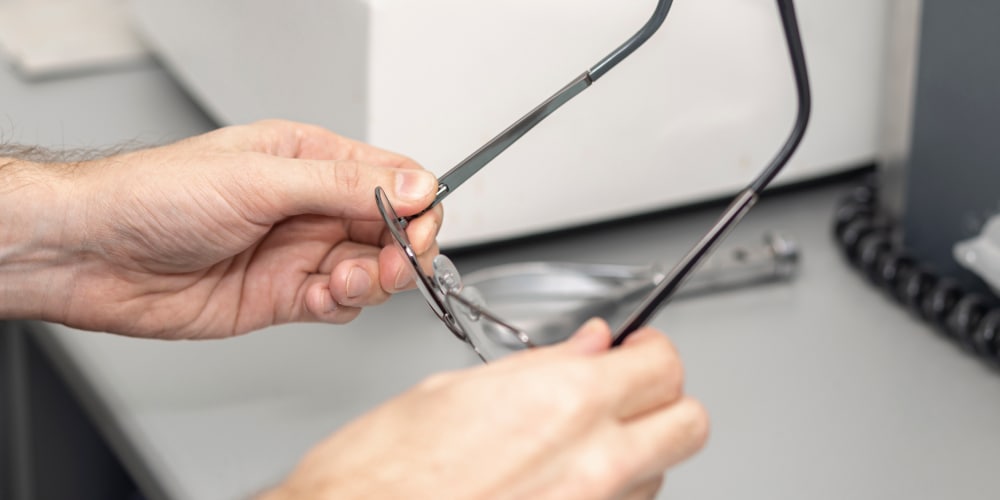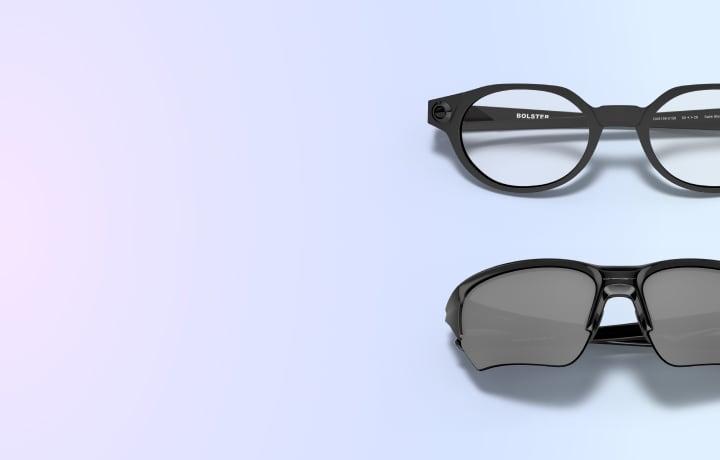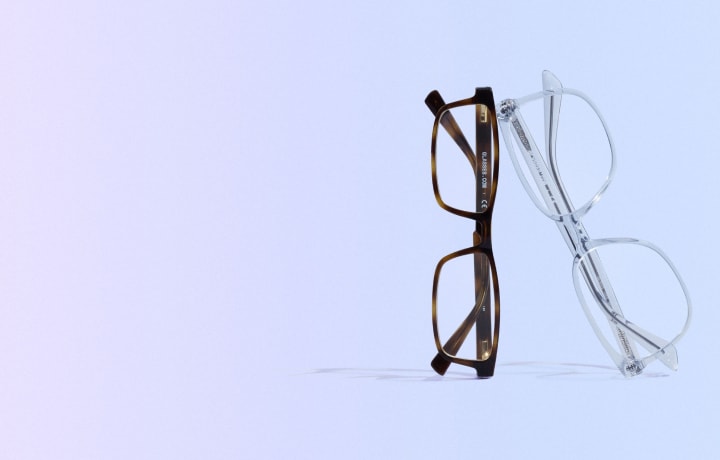
Getting a new pair of glasses can be exciting, but how frustrating is it when you make the first scratch on the lenses? Scratched lenses are the worst, anyone who has worn glasses for a while can tell you. But can you learn how to fix glasses scratches at home?
Thankfully, there are some simple home treatments and store-bought products that may be used to polish our spectacles. Here is a simple guide on how to fix scratched glasses at home if you've ever encountered this issue before.
How to remove scratches from glasses: myths and home remedies
It can be dangerous to attempt to remove scratches from prescription glasses on your own, especially if your lenses have been treated for anti-glare or other coatings since this can lead to crazing in the lenses, especially if you need to repair scratched sunglasses that have been polarized.
Let us walk you through various myths about how to fix scratched sunglasses before you strip your lenses of their coatings or sandblast your frames. In the end, changing the entire lens of a pair of glasses is the only effective way to get rid of scratches, otherwise, look into getting scratch remover for sunglasses.
Remove scratches from lenses with baking soda
People who wear eyeglasses and sunglasses swear by using a baking soda paste to repair their scratched lenses. Rub a thick paste of water and baking soda into the lenses in a circular motion after cleaning them with a microfiber cloth. This method does not require vigorous rubbing but a gentle touch.
Using toothpaste to get scratches off
Scratches on your glasses can get worse if you rub toothpaste on them.
When you apply toothpaste to scratched lenses, the theory is that the minute abrasive particles in the paste will wear down the lens coating sufficiently to cover the scratch. Gel toothpaste and toothpaste with whiteners will be much harsher on your glasses than other types of toothpaste because they are more abrasive.
Using wax to try and fill in scratches
Backing soda may repair scratches on the lens surface, but larger scratches need to be filled.
It's unlikely that applying wax to your glasses' scratches will do anything besides hinder your vision. Since wax is more opaque than the material of your lens, it can make a scratch more obvious (especially on furniture and cars). Even if it covers a deep scrape, the repair won't last.
Repair scratches using glass etching products
Any coatings on eyeglass lenses can be entirely removed with glass etching products. Theoretically, using a glass etching product to remove the coating from your scratched lens should "repair" the scratch if it just affects the coating layer.
However, you will then forfeit any advantages that the coating may have provided, such as blue light shielding. Additionally, if you leave glass etching solution on your lenses for an extended period, both the lens and the coating will be harmed. We never advise applying these products to your glasses because of this.
Can your optometrist remove scratches from glasses?
Scratched lenses cannot be repaired by opticians and need replacing. If a lens has sustained enough damage, it is permanent. An optician can make adjustments for you and offer tips on fit or maintenance, but we'll always advise replacing a scratched lens entirely as the best course of action.
The best course of action if your glasses are severely scratched is to have the lenses changed. You can see well and maintain the sharp appearance of your glasses with new lenses. Discuss the possibility of changing your lenses with your eye doctor to determine whether it is possible with your current frames, how long it might take, and how much it will cost.
How to prevent scratched glasses
You'll avoid wasted time, pain, and baking soda by preventing scratches on your glasses in the first place. How to shield them from unattractive blemishes is as follows:
- Ensure that the coating on your lenses is scratch-resistant. We currently apply a scratch-resistant coating to all of our polycarbonate lenses. Your lenses are likely to get scratched and scuffed without this protection.
- Use a microfiber cloth to clean your glasses. Smudges and markings might appear on your lenses if you let dirt or debris remain there. Using something other than a microfiber cloth can damage your lenses. You should only clean your glasses with a microfiber cloth and approved products because other materials, including tissue paper and clothing, can be too abrasive for the lenses.
- Put your eyewear in a sturdy case. Hard cases keep your glasses from getting damaged.
- During vigorous exertion, use contacts. Your glasses could be in danger of falling off your face and getting broken if you engage in any vigorous physical activity. During these active situations, think about using contact lenses.
- Treat your glasses with care. Don't throw them about like onto your nightstand or into your bag, and they’ll continue to protect your sight.
Is wearing scratched glasses bad?
Scratches on your spectacles are a tell-tale sign of irreparable harm. Even though they may appear small, scratches can impair your vision and lead to headaches and eye strain. For the clearest vision possible, keep your glasses clean, and if your lenses are scratched, think about purchasing a new pair with scratch-resistant lenses.













